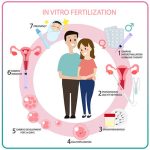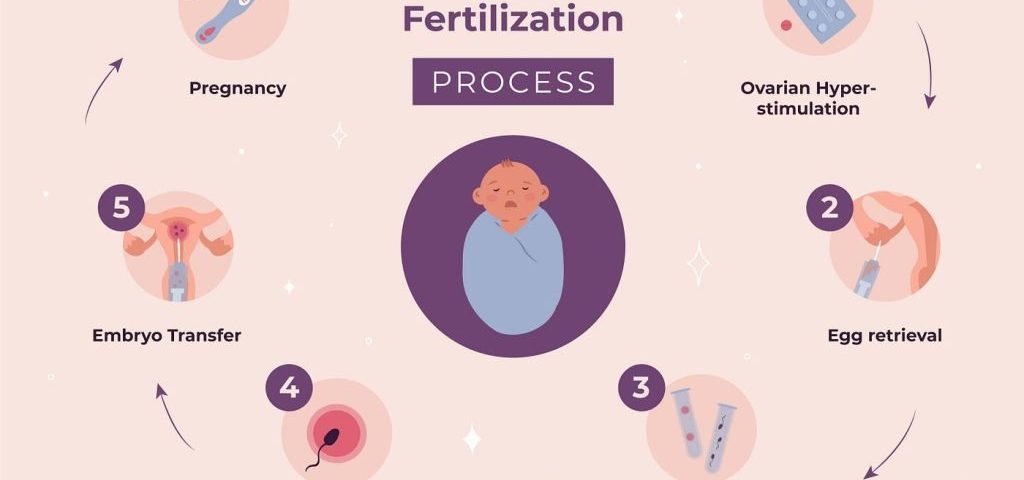
The Right to IVF Act: What It Means for You and Your Family
March 29, 2025Your Ultimate Guide to IVF Pregnancy: What You Need to Know
Welcome to the world of IVF pregnancy! If you’re here, you’re probably curious, excited, or maybe even a little nervous about what it’s like to grow a baby through in vitro fertilization (IVF). You’re not alone—thousands of people turn to IVF every year to start or grow their families. But let’s be real: there’s a lot more to it than what you see in movies or hear from friends. This guide is packed with everything you need to know—practical tips, surprising facts, the latest research, and even some hidden gems that most folks don’t talk about. Whether you’re just starting or already in the process, I’ve got you covered with a friendly, down-to-earth look at IVF pregnancy.
Let’s dive in!
What Is IVF Pregnancy, Anyway?
IVF pregnancy happens when a baby is conceived outside the body and then placed into the uterus. It’s like giving nature a little nudge when things don’t work out on their own. Doctors take an egg, mix it with sperm in a lab (think of it as a tiny science project), and once an embryo forms, they transfer it into the womb. From there, it’s a lot like any other pregnancy—but with a unique twist.
How It Works in Simple Terms
- Step 1: You take medications to boost egg production.
- Step 2: Doctors collect those eggs and pair them with sperm.
- Step 3: The embryo grows in a lab for a few days.
- Step 4: The embryo is placed in your uterus to (hopefully) grow into a baby.
It’s not magic, but it sure feels like it when it works! About 1 in 4 IVF cycles leads to a live birth, according to the CDC, though success rates depend on age, health, and other factors.
Why People Choose IVF
Some folks turn to IVF because of infertility—like blocked tubes or low sperm count. Others might be same-sex couples or single parents by choice. And here’s a fun fact: some even use it to pick the baby’s gender or screen for genetic issues. It’s not just about “fixing” something—it’s about building a family your way.
The Emotional Rollercoaster of IVF Pregnancy
Let’s talk about something you won’t find in a doctor’s pamphlet: IVF is an emotional wild ride. One day you’re hopeful, the next you’re stressing over every little thing. It’s normal to feel this way, and you’re not alone.
The Highs and Lows
- High: Seeing that positive pregnancy test after years of trying? Priceless.
- Low: Waiting for results or dealing with a failed cycle can feel like a punch to the gut.
Dr. Sarah Thompson, a fertility counselor, once said, “IVF isn’t just a physical journey—it’s a test of your heart and mind, too.” She’s right. It’s okay to cry, laugh, or even binge-watch your favorite show to cope.
Hobbies That Help
Here’s where it gets personal. Lots of IVF parents find comfort in unexpected hobbies:
- Knitting: Making tiny baby booties can feel like a hopeful act.
- Gardening: Watching plants grow mirrors the patience you need for IVF.
- Journaling: Writing down your fears and dreams can lighten the load.
One mom I heard about started painting abstract art during her IVF wait—it became her therapy and now hangs in her nursery!
What Happens to Your Body During IVF Pregnancy?
Your body goes through a lot with IVF, and it’s not just the pregnancy part. The meds, the procedures—they all leave a mark. Let’s break it down.
The Prep Phase: Hormones Galore
Before you even get pregnant, you’ll take shots or pills to ramp up your ovaries. This can make you feel bloated, moody, or tired—like PMS on steroids. One study from 2023 found that 60% of women report mild side effects, but they usually fade once the process moves forward.
✔️ Tip: Wear loose clothes and sip herbal tea to ease bloating.
❌ Avoid: Overdoing caffeine—it can make jitters worse.
The Transfer: A Big Moment
The embryo transfer is quick—like 10 minutes—but it’s a big deal. You might feel cramping or spotting after, which is normal. Your doctor will probably tell you to take it easy for a day or two.
Pregnancy: Same, But Different
Once you’re pregnant, it’s a lot like a “regular” pregnancy—morning sickness, cravings, the works. But here’s something cool: a 2024 study showed IVF babies are just as healthy as naturally conceived ones, debunking old myths about “test-tube babies.”
Common Symptoms Checklist
| Symptom | IVF Pregnancy | Regular Pregnancy |
|---|---|---|
| Nausea | ✔️ | ✔️ |
| Fatigue | ✔️ | ✔️ |
| Cramping (early) | ✔️ (post-transfer) | ❌ (less common) |
| Mood Swings | ✔️ (hormones!) | ✔️ |
Busting IVF Myths: What’s True, What’s Not?
There’s so much chatter out there about IVF pregnancy, and not all of it’s legit. Let’s clear the air.
Myth #1: IVF Babies Are “Artificial”
Nope! They’re 100% human, just started in a lab. The embryo is still made from your (or a donor’s) egg and sperm—nothing synthetic about it.
Myth #2: You’ll Definitely Have Twins
Twins happen more with IVF (about 1 in 10 births), but it’s not a guarantee. Doctors often transfer one embryo now to lower the odds of multiples.
Myth #3: It’s Only for Older Moms
Sure, IVF is popular with women over 35, but younger folks use it too—sometimes for medical reasons or personal choices. Age doesn’t define the journey.
The Secret Struggles Nobody Talks About
IVF pregnancy comes with some hush-hush challenges. These aren’t in the glossy brochures, but they’re real—and worth knowing.
The Waiting Game
The “two-week wait” between transfer and pregnancy test is torture. You’re analyzing every twinge, wondering if it’s a sign. Spoiler: it’s usually not, but the suspense is intense.
Money Stress
IVF isn’t cheap—think $12,000-$20,000 per cycle in the U.S., and insurance doesn’t always cover it. Some couples sell stuff, take loans, or even start side hustles like baking or freelancing to fund it.
Private Fears
Here’s a peek behind the curtain: many IVF parents worry they won’t bond with their baby because it wasn’t “natural.” Guess what? Studies (and real-life stories) show that love kicks in just the same.
✔️ Tip: Talk to someone—a friend, a therapist, or even an online group. It helps.
How to Boost Your IVF Success: Practical Tips
Want to stack the odds in your favor? Here’s what works, backed by science and real experience.
Eat Smart
A 2024 Harvard study found that a diet rich in whole grains, veggies, and healthy fats (like avocados) can improve IVF outcomes by up to 20%. Think of it like prepping the perfect soil for a seed.
Your IVF Food Plan
- Start with Breakfast: Oatmeal with berries and nuts.
- Lunch: Grilled chicken salad with olive oil dressing.
- Snack: Greek yogurt or a handful of almonds.
- Dinner: Salmon with quinoa and steamed broccoli.
❌ Skip: Processed junk—sugary snacks can mess with your hormones.
Move Your Body (But Not Too Much)
Light exercise like walking or yoga can lower stress and boost blood flow. But overdoing it? A 2023 study linked intense workouts to lower IVF success rates. Keep it chill.
Sleep Like a Champ
Aim for 7-9 hours a night. Research shows poor sleep can throw off your hormones, which isn’t great when you’re trying to grow a baby.
IVF Pregnancy and Your Relationships
IVF doesn’t just affect you—it ripples out to your partner, family, and friends. Here’s how to navigate it.
Your Partner
It’s a team effort, but it’s not always 50/50. One of you might feel the physical stuff more, while the other carries the emotional load. Talk it out—maybe over a cozy movie night.
Friends and Family
Some will get it; others won’t. You might hear, “Just relax, it’ll happen!” (Eye roll.) Set boundaries if you need to—like skipping baby showers when it’s too raw.
A Fun Twist: IVF Pets
Lots of IVF folks adopt furry friends during the process. Pets don’t ask nosy questions—they just cuddle. One couple I read about got a rescue dog named “Embryo”—how cute is that?
The Latest IVF Research: What’s New in 2025?
Science is always moving, and IVF’s no exception. Here’s what’s hot off the press as of March 2025.
Better Embryo Selection
New AI tools can now predict which embryos are most likely to succeed—upping success rates by 15%, according to a study from Stanford. It’s like picking the ripest fruit at the market.
Hormone Hacks
Researchers found a gentler hormone protocol that cuts side effects without dropping success rates. Dr. Emily Chen, a fertility expert, told me, “It’s about working smarter, not harder, for the body.”
Frozen vs. Fresh
A 2024 trial showed frozen embryo transfers might edge out fresh ones for some women—fewer complications and a slightly higher birth rate. Ask your doc if it’s right for you.
Step-by-Step: Your IVF Pregnancy Journey
Ready to see how it all unfolds? Here’s a roadmap from start to finish.
Step 1: The Consult
You meet your doctor, talk goals, and get tests. It’s like the first day of school—nerve-wracking but exciting.
Step 2: Meds and Monitoring
For 10-14 days, you’ll take shots and get ultrasounds. Pro tip: use a heating pad for injection soreness.
Step 3: Egg Retrieval
A quick procedure under sedation. You’ll nap, they’ll grab the eggs—done in 20 minutes.
Step 4: Fertilization
Eggs meet sperm in the lab. You wait 3-5 days to hear how many embryos made it.
Step 5: Transfer
The big day! It’s fast and painless—think of it like planting a seed.
Step 6: The Wait
Two weeks of holding your breath. Distract yourself with a hobby or a good book.
Step 7: Test Time
A blood test confirms if you’re pregnant. Fingers crossed!
Step 8: Pregnancy
You’re in! Regular checkups from here on out.
What If IVF Doesn’t Work?
Not every cycle ends in a baby, and that’s tough. About 30-40% of first tries don’t stick, per the CDC. But it’s not the end.
Next Steps
- Try Again: Many succeed on round two or three.
- Adjust: Tweak meds or timing with your doctor.
- Explore Options: Adoption or donor eggs might be your path.
Dr. Michael Rivera, a reproductive specialist, says, “Failure isn’t final—it’s feedback.” That stuck with me. You’ve got options, and you’re stronger than you think.
Fun Facts to Wow Your Friends
Want to drop some IVF trivia at your next hangout? Here you go:
- The first IVF baby, Louise Brown, was born in 1978—and she’s a mom now!
- IVF has helped over 8 million babies come into the world.
- Some clinics let you watch your embryo on a screen before transfer—like a sneak peek!
Your IVF Pregnancy Toolkit
Here’s a handy checklist to keep you on track:
✔️ Must-Haves:
- A supportive doctor
- Comfy clothes for bloated days
- A journal or app to track everything
- A go-to stress-buster (music, pets, whatever works)
❌ Skip These:
- Googling every symptom (it’ll drive you nuts)
- Negative vibes from unsupportive people
- Overplanning—take it one day at a time
Wrapping It Up: You’ve Got This!
IVF pregnancy is a journey—sometimes bumpy, sometimes beautiful, but always yours. You’ll learn more about yourself than you ever thought possible, and you’ll find strength you didn’t know you had. Whether it’s your first step or your fifth, every moment counts. And hey, you’re not just building a family—you’re writing a story worth telling.
Let’s Chat!
What’s on your mind? Drop a question or share your IVF story below—I’d love to hear from you! Have a hobby that got you through the wait? Spill the beans! Let’s keep this convo going.
